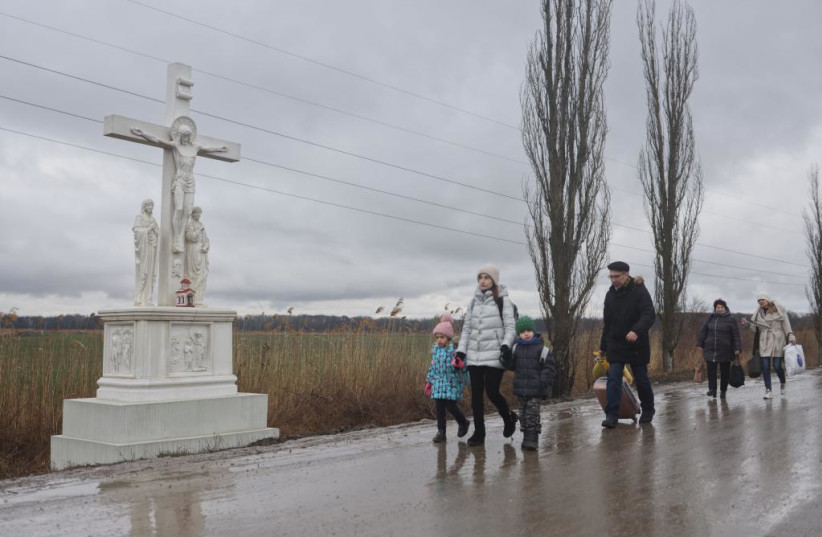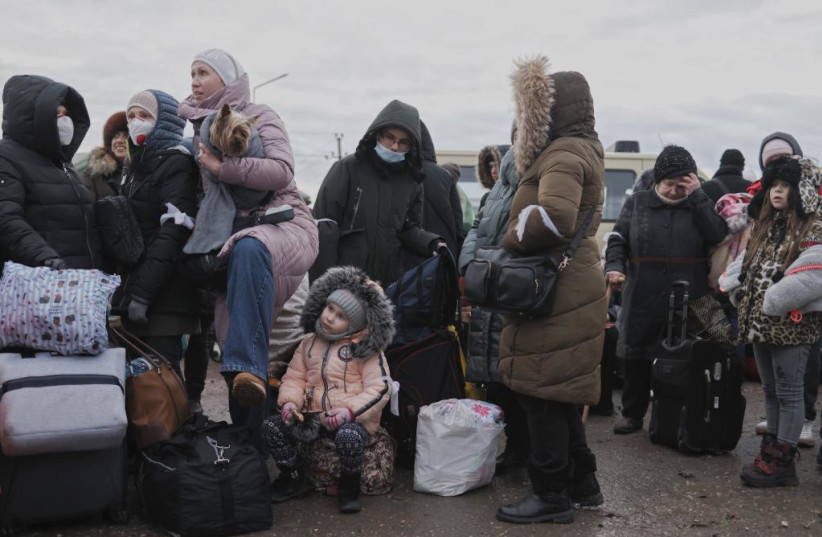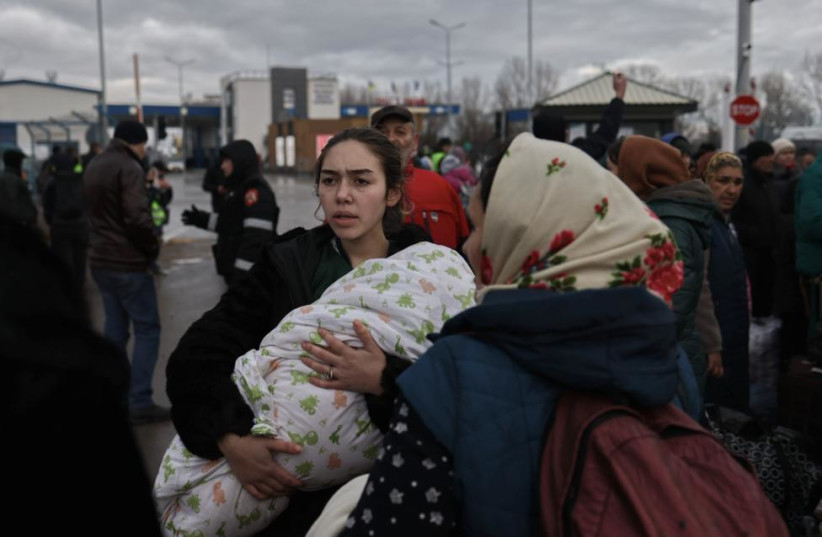PALANCA CROSSING, Moldova-Ukraine border – A steady stream of refugees made their way across the border from Ukraine into Moldova through the Palanca crossing in the rain and freezing cold on Thursday, dragging along suitcases packed amid uncertainty over whether they will ever be able to return home.
Many families of refugees from Kyiv and Odessa walked for hours, because cars clogged the final 12 km. (7.5 miles) before the border. They walked with their children dressed warmly, some with their dogs.
Nikita, 17, said he left his home in Odessa and intended to make his way to friends in Berlin.
“I hope the war will end soon,” he said. “There were too many sirens and booms. We will come back to Odessa later when it’s all over.”
Speaking to reporters under an umbrella, Anastasia, 10, said she did not know why the Russians had attacked her country, but her mother said it was time to leave.

A mother named Helen walked down the street with her daughters, who are nine and 11 and had pink backpacks full of clothes. She said she was waiting for her parents to join her from Odessa.
“It’s very hard,” Helen said. “The kids have been crying, but I tell them that the war will end soon and everything will be okay.”
Refugees such as Nikita, Anastasia and Helen’s family were greeted in Moldova by a show of solidarity from local residents who volunteered to host them in their homes or take them anywhere they wanted. Taxis and buses were free for refugees, restaurants gave them free food, and museums and wineries were open for them at no cost.

Since the Russians invaded Ukraine, 152,000 Ukrainians have crossed the border to Moldova, including 25,000 children and 5,000 Jews. Moldova decided that Ukrainians will be able to work without documents.
“It is unimaginable how much the Moldovan people opened their hearts in solidarity,” said Alex Roitman, Moldova’s chargé d’affaires in Israel. “It’s not simple, because Moldova is a small country.”
Benny Hadad, the director of aliyah for the International Fellowship of Christians and Jews, greeted a busload of Ukrainians from Odessa late Thursday. His organization opened a second shelter in Moldova after the first one was full, and it will fund a flight of immigrants to Israel on Sunday, he said.
“These are sights here on the border that shouldn’t be seen in 2022,” Hadad said. “But the good news is that this is the time when people are showing their humanity. Strangers are coming with blankets and taking people in.”

Because in many cases fathers stayed behind to fight, there was a tent close to the border from the organization IsraAID that was set up for women and children and provided toys, baby food and diapers.
“Our mandate is to support any vulnerable people in crisis,” said volunteer Ethan Schwartz, who is from Tel Aviv. “Everyone who has reached this point has demonstrated so much strength by traveling to the border and waiting for hours in the rain. They have been through a difficult situation, but they demonstrated their resilience by taking their lives into their own hands.”
